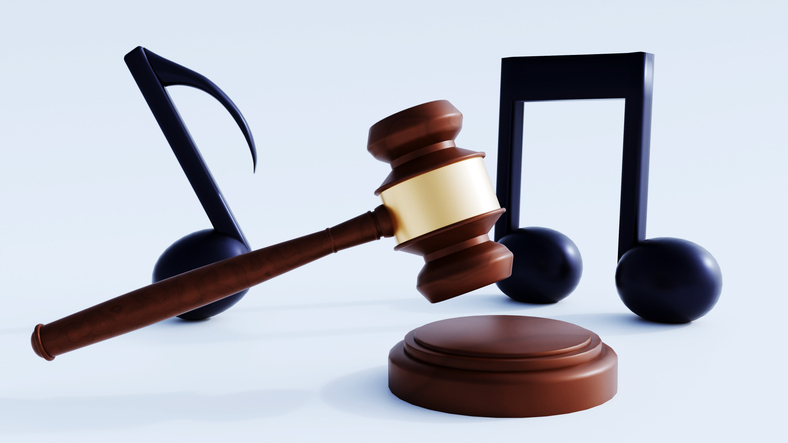- 5 Oct 2025

In 2025, digital media continues to evolve rapidly, but one constant remains: the importance of understanding copyright law for content creators. Whether producing videos, writing blogs, recording podcasts, or publishing photography, creators rely on copyright protections to safeguard their intellectual property. At the same time, creators must also avoid infringing on the rights of others, which can lead to legal disputes or takedowns.
The goal of this guide is to provide a clear overview of copyright law for content creators, with an emphasis on the latest developments, fair use basics, and strategies to navigate ownership rights effectively. By understanding how these laws apply, creators can both protect their own work and respect the creative contributions of others.
Why Copyright Law for Content Creators Matters in 2025
The digital landscape has expanded to include platforms like TikTok, Instagram Reels, YouTube, and podcast distribution networks where content is consumed globally within seconds of publication. With this growth, legal disputes over ownership, plagiarism, and monetization are increasingly common. Copyright law for content creators ensures that original works—whether visual, written, or recorded—are legally recognized as the intellectual property of the creator from the moment of creation.
This protection is essential because it grants creators the exclusive rights to reproduce, distribute, display, and adapt their work. Without these rights, monetization opportunities, brand deals, and licensing arrangements would be at constant risk of exploitation. In practice, copyright law for content creators serves as the foundation of trust in the digital economy.
The Legal Foundations of Copyright Law for Content Creators
To understand how copyright law for content creators functions, it is necessary to recognize its legal roots. In the United States, copyright protection is governed by Title 17 of the U.S. Code, which sets out the rights of authors and creators. According to the U.S. Copyright Office, copyright applies automatically once an original work is fixed in a tangible medium of expression, meaning it is recorded in some form that can be perceived, reproduced, or communicated.
This legal foundation is crucial because it eliminates the need for creators to take additional steps to obtain protection, although formal registration with the Copyright Office provides stronger enforcement options. Registration allows a creator to sue for statutory damages and attorney’s fees if infringement occurs. These provisions make copyright law for content creators both practical and enforceable in real-world disputes.
Ownership Rights Under Copyright Law for Content Creators
At its core, copyright law for content creators grants five exclusive rights:
-
The right to reproduce the work
-
The right to distribute the work
-
The right to perform or display the work publicly
-
The right to create derivative works
-
The right to license or transfer these rights to others
For a content creator, these rights are not abstract. They directly control whether a video can be reposted without permission, whether an image can be used in commercial advertising, and whether a podcast can be adapted into another medium. In practice, copyright law for content creators empowers individuals to determine how their work enters the marketplace and under what conditions.
Fair Use and Its Role in Copyright Law for Content Creators
No discussion of copyright law for content creators is complete without addressing fair use. This doctrine allows limited use of copyrighted material without permission for purposes such as commentary, criticism, education, or parody. For instance, a YouTuber reviewing a movie may include short clips under fair use, provided the use is transformative and does not replace the market value of the original work.
Courts typically assess fair use by considering four factors: the purpose of the use, the nature of the copyrighted work, the amount of the work used, and the effect of the use on the market. Because these factors require case-by-case interpretation, creators should be cautious when invoking fair use. Misunderstanding this doctrine can lead to takedowns, strikes, or lawsuits. This is why copyright law for content creators requires not only awareness but also careful judgment in practice.
Digital Platforms and Copyright Law for Content Creators
In 2025, the relationship between social media platforms and copyright law for content creators remains a critical issue. Platforms like YouTube, TikTok, and Instagram operate under the Digital Millennium Copyright Act (DMCA), which provides safe harbor protections to hosting services that promptly remove infringing content upon receiving a valid notice.
This system means that creators must be prepared for their work to be flagged or removed, even when the use might qualify as fair use. Filing counter-notifications under the DMCA is one way to challenge improper takedowns, but this process requires a solid understanding of the underlying law. By aligning with the principles of copyright law for content creators, individuals can navigate these challenges while preserving their rights and maintaining compliance with platform rules.
Emerging Challenges in Copyright Law for Content Creators
As technology advances, new challenges test the boundaries of copyright law for content creators. Artificial intelligence tools that generate images, text, and music have raised questions about authorship and originality. Courts and lawmakers are still grappling with whether AI-generated content qualifies for protection or whether copyright applies only when human creativity is clearly involved.
Similarly, the globalization of digital media introduces jurisdictional issues. A creator in one country may find their work reposted in another, where local copyright laws differ. These complexities highlight why copyright law for content creators is not static but continually adapting to technological and cultural shifts.
Practical Applications of Copyright Law for Content Creators
In everyday scenarios, copyright law for content creators applies in ways that directly impact workflow and income. Photographers must decide whether to watermark images before posting them online. Musicians need to consider licensing agreements when sampling existing tracks. Writers publishing blog posts or eBooks should be aware that copying sections of another’s work—even unintentionally—can constitute infringement.
The internal consistency of rights and responsibilities means that creators who understand copyright law for content creators can avoid costly mistakes while positioning themselves for success. For example, properly licensing background music for a video not only prevents disputes but also adds value by ensuring the work can be monetized without interruption.
Linking Protections and Responsibilities
The importance of respecting copyright law for content creators is underscored by the consequences of infringement. Courts may impose damages, and platforms can terminate accounts for repeat violations. To avoid these outcomes, creators often rely on educational resources. One comprehensive overview can be found in this guide to copyright law for content creators at OmniLaw’s resource on copyright law for creators, which explains foundational principles and practical tips for staying compliant.
In addition, the U.S. Copyright Office provides direct information about registration, fair use, and enforcement at copyright.gov, ensuring that creators can access authoritative legal standards when making decisions about their work.
Conclusion
As the digital landscape of 2025 continues to expand, the role of copyright law for content creators has never been more significant. By understanding ownership rights, fair use, platform rules, and emerging challenges, creators can safeguard their work while contributing responsibly to the global content ecosystem.
Knowledge of copyright law for content creators empowers individuals not only to protect their intellectual property but also to collaborate, license, and share content with confidence. The balance between innovation and legal compliance rests on this foundation, ensuring that creativity thrives within a framework of respect for authorship and originality.
Recent posts
- 5 Oct 2025
- 3 Oct 2025
- 3 Oct 2025
Categories
- Accident & Injury Law (54)
- AI (1)
- Copyright Law (1)
- Criminal & Civil Law (17)
- Disability Law (2)
- Driving Law (2)
- Employment Law (1)
- Estate Planning (2)
- Family & Relationship Law (29)
- Food and Drink (2)
- Gas Exposure (1)
- Health (1)
- Immigration Law (2)
- Injury Claim (1)
- Insurance Law (7)
- Legal (40)
- Lemon Law (4)
- Mediation (3)
- Medical Malpractice (1)
- Property & Business Law (9)
- Severance Agreement (1)
- Travel and Leisure (1)
- Uncategorized (8)
- Worker Compensation (2)



